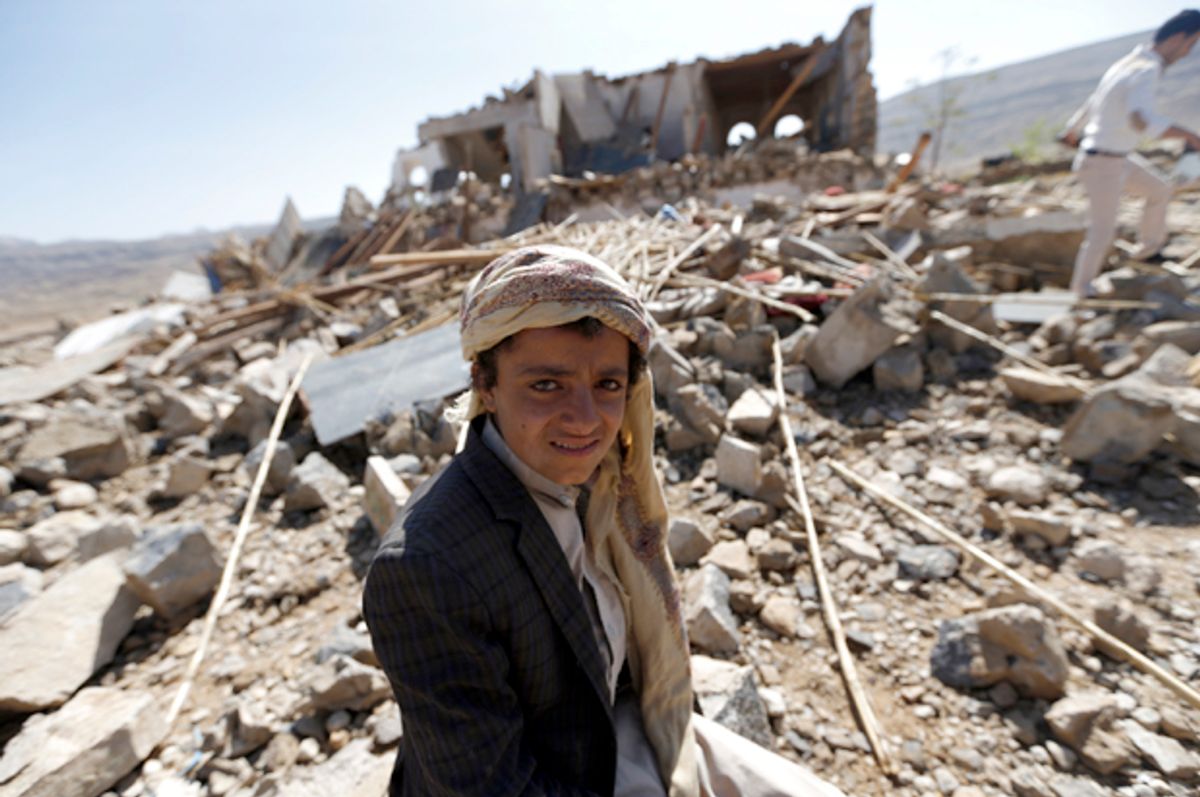While the United States has played an active role in Yemen's civil war, one that has only proven to exacerbate the humanitarian crisis on the ground, 1,200 Yemenis stand to lose protection and now face the threat of being deported back to their war-torn country.
There are currently about 1,200 Yemenis under temporary protected status (TPS), a program that allows individuals already living inside the U.S. to receive protection because their home country has been deemed too unsafe to return to, or because it would not be able to adequately take them back.
Homeland Security Secretary Kirstjen Nielsen has until July 5 to decide whether or not the program will be extended. As of Thursday, a DHS spokesperson said that Nielsen had still not yet made up her mind, according to a report by the Huffington Post.
Despite the lack of attention in the mainstream media, the U.S. has played anything but a passive role in the ongoing civil war in Yemen, which has so far left more than 10,000 civilians dead. The United Nations has repeatedly called for called for ceasefires in order to increase aid delivery, as the situation has been dubbed the "world's worst humanitarian crisis."
Yemenis first received protected status under the Obama administration in September 2015, months after the U.S. began refueling Saudi war planes, and providing targeting and logistics intelligence, the Huffington Post noted.
The U.S. has also supported the Saudi-led coalition's de facto blockade of Yemen's ports, which has made delivering aid a near impossible task.
It's important to note that the U.S. has long been militarily engaged in Yemen, and Trump is the third consecutive president perpetuate such involvement in one way or another, with no signs of an end in sight.
With roughly 1,200 Yemenis facing the threat of being deported back to a nation in which the U.S. has played an active role in worsening the conflict, the Trump administration continues to prove how ruthless its anti-immigration policy agenda truly is despite outpouring criticism. It's also indicative of how such an aggressive hardline agenda could result in life or death circumstances for many.
To this point, the Trump administration has already "ended TPS for 98 percent of current recipients ― more than 250,000 people," according to the Huffington Post. Yemen is also one of the seven countries Trump has imposed a travel ban on.
In Yemen, the scene only continues to grow more grim, as more than 8 million people face starvation, and have little access to aid or clean water. The nation has also suffered through the worst cholera outbreak ever recorded. In total, about 22 million Yemenis are in need of humanitarian assistance.
Advocacy groups such as Win Without War and the Yemen Peace Project have called for the Trump administration to extend temporary protected status for 1,200 Yemenis. The organizations have asked voters to call their members of Congress to take action.
"The United States simply cannot contribute to a conflict engendering the world’s worst humanitarian crisis and expel those seeking shelter from its grave consequences," the Washington D.C.-based organization wrote.
Last week, 33 national security experts, 31 of whom are former federal government officials, sent a letter to Nielsen and State Secretary Mike Pompeo and urged them to extend TPS for Yemenis in the U.S. Three former U.S. ambassadors to Yemen, Gerald Feierstein, Barbara Bodine and Stephen A. Seche, announced that they would also sign onto that letter.
"As a major source of both material and political support to the Saudi-led coalition intervening in Yemen, the U.S. can neither ignore its role in the conflict, nor the moral responsibility it bears for the outcomes," the ambassadors wrote. "It would be unconscionable for our country to actively support this war and then refuse to protect those who flee from it. The Trump administration has already halted resettlement of Yemeni refugees, and has thrown up numerous barriers to prevent Yemenis from entering the U.S. or applying for asylum."
They continued, "Extending TPS is the least this country can do in the face of the world’s worst humanitarian disaster."
On Sunday, the United Arab Emirates announced it halted its military campaign against the Iranian-backed Houthi rebels for control of the main port city of Hodeida, Reuters reported. The UAE stated it stopped the efforts in order to help bring about a political solution. Nearly three weeks ago, just prior to the offensive, the U.N. warned of potential "catastrophic humanitarian consequences."



Shares